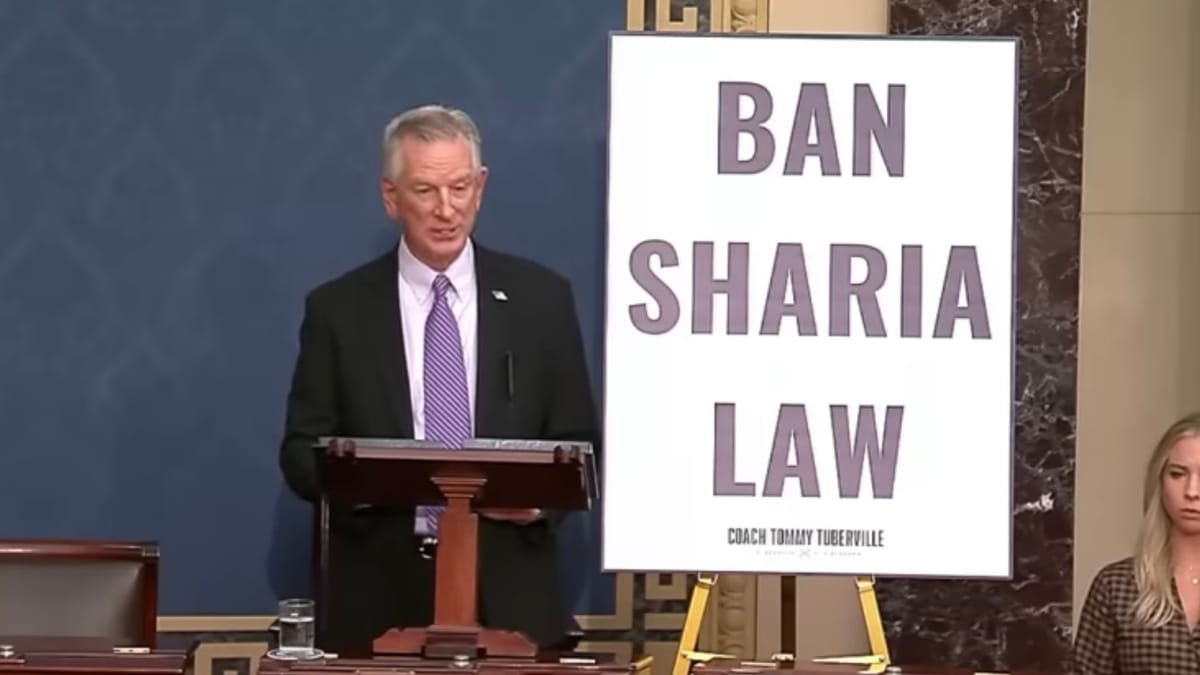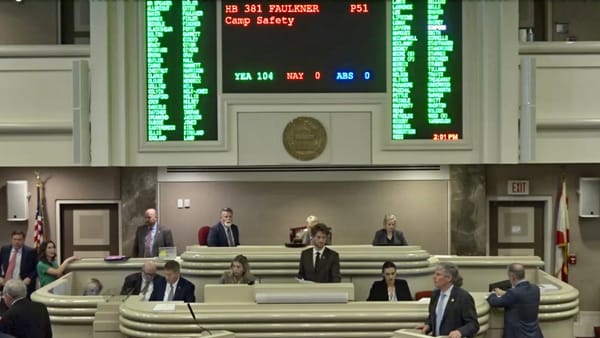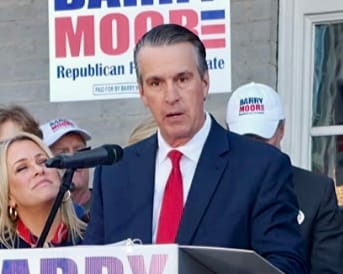Sen. Tommy Tuberville Urges Ban on Sharia
Cites continuing threat of radical Islamic extremism, says those who support Sharia should be deported

U.S. Sen. Tommy Tuberville (R-AL) has called for a nationwide ban on Sharia law and demanded that anyone who supports it be deported. He linked the measure to what he described as a continuing threat of radical Islamic extremism in America in a recent speech on the Senate floor.
“Sharia Law is anti-American and has no place in a free society,” Tuberville said. “If you believe that Sharia Law supersedes American law, you should be deported immediately.”
He tied his remarks to the attacks of September 11, 2001, saying Americans “remember exactly where we were.” He warned that radical Islam “is alive and well in our very own country just waiting for the right opportunity to attack.”
Tuberville pointed out the lack of mainstream media coverage for the ongoing slaughter of Christians by radical Islamists, saying:
“Just this year alone, more than 7,000 Nigerian Christians have been murdered because of their faith alone. You can’t turn on the TV without hearing about Israel’s so-called ‘mass genocide’ of Palestinians—every day. And yet when it comes to 62,000 Christians being slaughtered by radical Muslims, it’s radio silence. This extreme ideology is straight from the pit of hell, and it has no place in American society. We are blessed that freedom of worship is a Constitutionally-guaranteed right in this country.”
That’s what our forefathers fought for. If you want to come here legally, practice a peaceful version of Islam, and blend into our society by adopting the treasured American values of life, liberty, and the pursuit of happiness, you are welcome to do so.”
The speech comes amid a resurgence of debates over “foreign law” bans—measures that seek to limit or ban courts from applying judicial principles not rooted in U.S. or state constitutions. Tuberville cited Texas’s recent steps and urged other States to follow.
While Tuberville named Texas specifically, his call echoes earlier efforts in Alabama. In 2014, voters approved Amendment 1, officially called the “American and Alabama Laws for Alabama Courts Amendment,” which barred courts from applying “foreign law” when it conflicts with Alabama’s public policy or constitutional rights.
While the amendment never named Sharia explicitly, it is widely viewed as a legal vehicle to prevent courts from entertaining religious or foreign legal systems. (Al Arabiya English)
With 72 percent of voters approving the measure, Alabama became the seventh State to adopt such a ban.
Amendment 1’s text prohibits courts, arbitrators, and other adjudicative bodies from applying foreign laws if doing so would violate State law or constitutional rights. It also requires that contractual provisions calling for foreign law or foreign forums must be modified or voided if they conflict with constitutional protections.
Critics say such bans can carry unintended consequences. The Brennan Center for Justice warned that states might refuse to enforce foreign judgments that do not violate rights—such as divorces or religious arbitral decisions from other countries—even when those decisions were fair and lawful.
Jewish groups, for instance, have expressed concern that bans like Alabama’s could interfere with recognition of divorces handled by rabbinical tribunals (a Get) or religious agreements made abroad.
Opponents of foreign law bans argue that they are rooted in fear and target Muslims. A 2013 Brennan Center report described them as “thinly concealed attempts to demoralize the faith.” Other provisions in bans—such as striking down contractual “choice-of-law” clauses—may raise uncertainties for businesses and international agreements. In many cases, courts already refuse to enforce foreign laws that conflict with constitutional protections, making the bans largely symbolic.
Dr. Nasim Uddin, President of the Birmingham Islamic Society responded to ALPolitics.com’s request for a comment on Senator Tuberville’s statement by saying:
“Senator Tuberville’s comments reflect a misunderstanding of what sharia actually means. Sharia is not a foreign legal code or a threat to American law—it’s a personal and spiritual framework that guides how Muslims live with faith and integrity.
“For most Muslims, sharia—literally “the path” or “the way”—is about daily worship, honesty, compassion, and service to others. When I practice sharia, I’m praying, fasting during Ramadan, giving charity, and striving to treat people with kindness and fairness.
“For Muslims, sharia is personal - that is, there is no desire to impose Muslim views on others - much like how Christians choose to follow the teachings of Jesus or Jews choose to follow the ethical principles of the Torah.
“Unfortunately, media coverage often highlights extreme or politicized interpretations used by a few governments or groups. Those do not represent what sharia means to ordinary Muslims. For the vast majority, sharia isn’t about punishment or politics—it’s about justice, mercy, charity, and living a good and meaningful life.”
Senator Tuberville’s full remarks may be read HERE, or seen on Rumble, YouTube or below:




